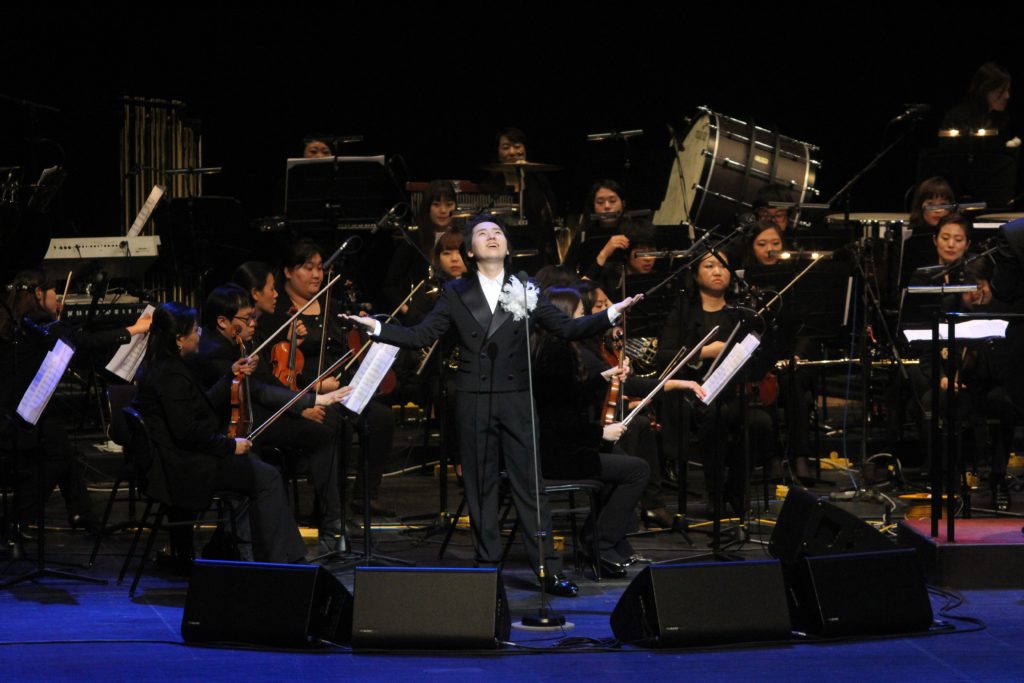The Peninsula
Korean Classical Musicians Need to Become Entrepreneurs
Published October 12, 2017
Category: South Korea

By Paul Sung
Classical music is a dying art that is shrinking partly due to the lack of entrepreneurial innovation. This trend is especially evident in South Korea.
Although native Korean musicians like Sohn Jeung-beum, Son Yeol-eum, Yekwon Sunwoo, and Jasmine Choi have risen with much success with their music, only a few classical musicians are able to attain the prestige and sustain their living from their profession. According to Korean American classical musician and entrepreneur Hugh Sung, Korean classical musicians are restrained by the overbearing teacher-student relationship and their inability to tap into the entrepreneurial spirit of innovation.
Korean teachers tend to want excessive control over their students. They restrict students to only a certain number of pieces and therefore discourage students from exploring other pieces and thinking outside the box. These teachers also discourage the flexibility of learning from multiple mentors. In an ever-shrinking industry like classical music, teachers are increasingly concerned about losing their students. As a result, they condition students to learn from only one mentor, thereby discouraging alternative means of growth. Many Korean students go overseas to countries like the United States and Germany in order to escape the heavy handed and rigid teaching environment of their native mentors. Students who become teachers unfortunately carry on this teacher-student dynamics by imposing the same rigid methodologies onto their own pupils.
As with their non-musical peers, classical musicians have an intense focus on education, but they tend to come out of training with the capability of performing only a very limited number of pieces. They are drilled to perform to the best of their ability, but they lack distinguishable traits that set them apart from each other. Due to their narrow focus on such a particular art, young classical musicians also miss the opportunities to expand their skill sets and to explore other career options. If a student decides not to stay in the classical music field, he is left unprepared for the workforce in other industries.
The lack of networking skills among Korean classical musicians also hampers career opportunities in the industry. Korean musicians tend to have good social circles among family and friends, but they do not have a good grasp in networking to a wider audience. Many musicians have their parents pay for concerts and invite friends, but resorting to these small social circles rarely leads to much success in the classical music profession. Young Korean classical musicians, as they currently operate, are falling behind because of their lack of creativity. A mindset of innovation, the ability or willingness to reinvent oneself, and a wider range of professional skills are what Koreans in the classical music industry need in order to succeed.
Koreans Need Entrepreneurship in Classical Music
Korean musicians face a dilemma similar to other Korean businesses in the services industry. According to Robert Atkinson in the Korea Economic Institute’s 2016 Korea Economy publication, Korea’s efficiency in using Information and Communication Technology (ICT) lags behind other countries like the United States. Despite being in a tech-savvy country that heavily uses social media platforms such as YouTube, Facebook, Twitter, Instagram, and KakaoTalk, Korean musicians have yet to fully utilize such tools. More Korean musicians can especially increase their presence on YouTube by not just showcasing the classical pieces they already know, but also by learning and presenting different styles and pieces in new ways that positively attract attention. Online musicians such as the YouTube channels Animenz Piano Sheets and xclassicalcatx tap into the Japanese anime community with their instrumental covers. Japanese and American pop culture references have even been in use by businesses such as the food chain Arby’s.
Equipped with their specific art training and expanding upon it, classical musicians can also expand in other industries such as drama and videogame original sound tracks (OSTs), and K-pop. Yiruma, a classically-trained Korean composer known for his works in Korean dramas, even had his work used in an Australian drama “Packed to the Rafters.” Korean American musician Jennifer Lee, known by her stage name TOKiMONSTA, is another musician who was classically trained as a pianist. She became a DJ who develops beats for different genres such as EDM and has her music featured in various events such as a virtual reality concert with TheWaveVR. Even the flutist Jasmine Choi performed songs outside of classical music with covers to popular songs such as “Hoot” by Girls’ Generation.
Korean classical musicians can learn from U.S. musicians and entrepreneurs to adapt greater flexibility in the way they sustain or alter their musical paths and educate younger performers. Using online platforms not only for fan-building, but also for digital education and networking can be one of the many ways that Korean classical musicians can thrive. Whatever paths Korean classical musicians decide to take, they should seriously consider the benefits of incorporating technology and business to their practice.
Most importantly, the mindset of classical musicians needs to change. As Hugh Sung notes, classical musicians should shift from a self-serving desire of putting value in one’s own identity as an artist to think instead of how they can fulfill the needs of others. This entrepreneurial mindset of giving value for other people, whether as a performer or teacher, is one step in the right direction.
Paul Sung is currently an Intern at the Korea Economic Institute of America. The views expressed here are the author’s alone.
Photo from DNG com’s photostream on flickr Creative Commons.
